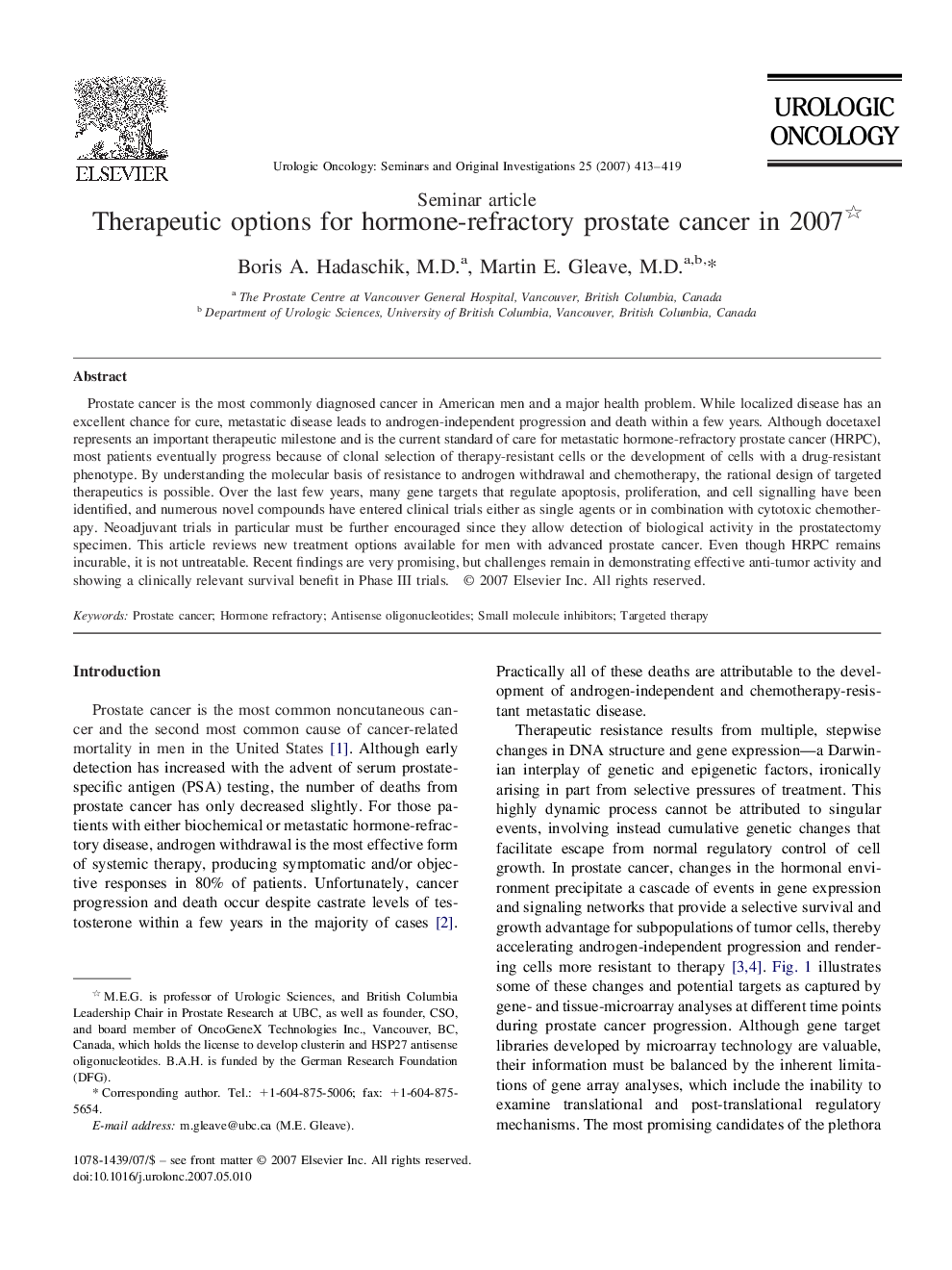| Article ID | Journal | Published Year | Pages | File Type |
|---|---|---|---|---|
| 4001077 | Urologic Oncology: Seminars and Original Investigations | 2007 | 7 Pages |
Prostate cancer is the most commonly diagnosed cancer in American men and a major health problem. While localized disease has an excellent chance for cure, metastatic disease leads to androgen-independent progression and death within a few years. Although docetaxel represents an important therapeutic milestone and is the current standard of care for metastatic hormone-refractory prostate cancer (HRPC), most patients eventually progress because of clonal selection of therapy-resistant cells or the development of cells with a drug-resistant phenotype. By understanding the molecular basis of resistance to androgen withdrawal and chemotherapy, the rational design of targeted therapeutics is possible. Over the last few years, many gene targets that regulate apoptosis, proliferation, and cell signalling have been identified, and numerous novel compounds have entered clinical trials either as single agents or in combination with cytotoxic chemotherapy. Neoadjuvant trials in particular must be further encouraged since they allow detection of biological activity in the prostatectomy specimen. This article reviews new treatment options available for men with advanced prostate cancer. Even though HRPC remains incurable, it is not untreatable. Recent findings are very promising, but challenges remain in demonstrating effective anti-tumor activity and showing a clinically relevant survival benefit in Phase III trials.
